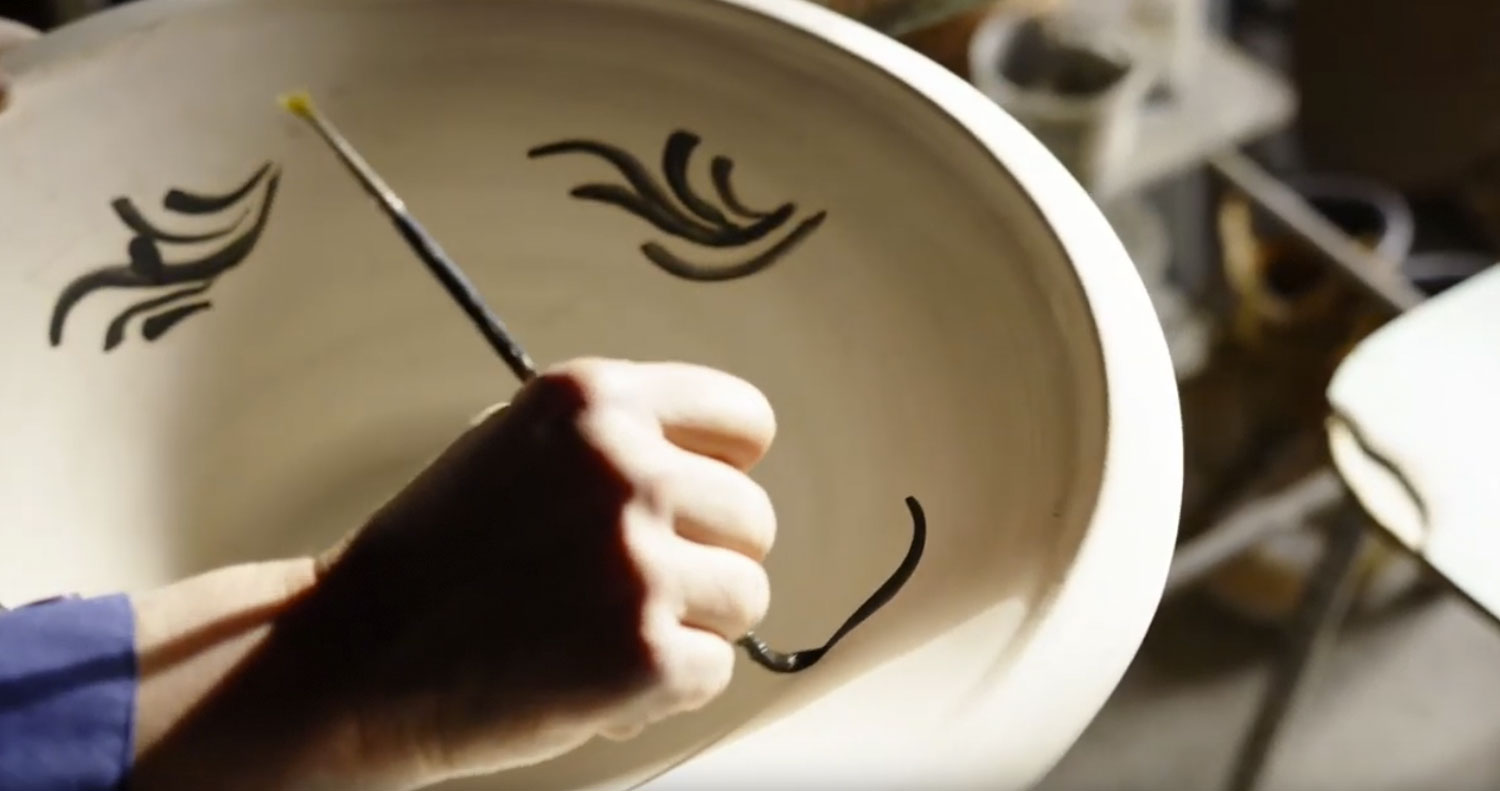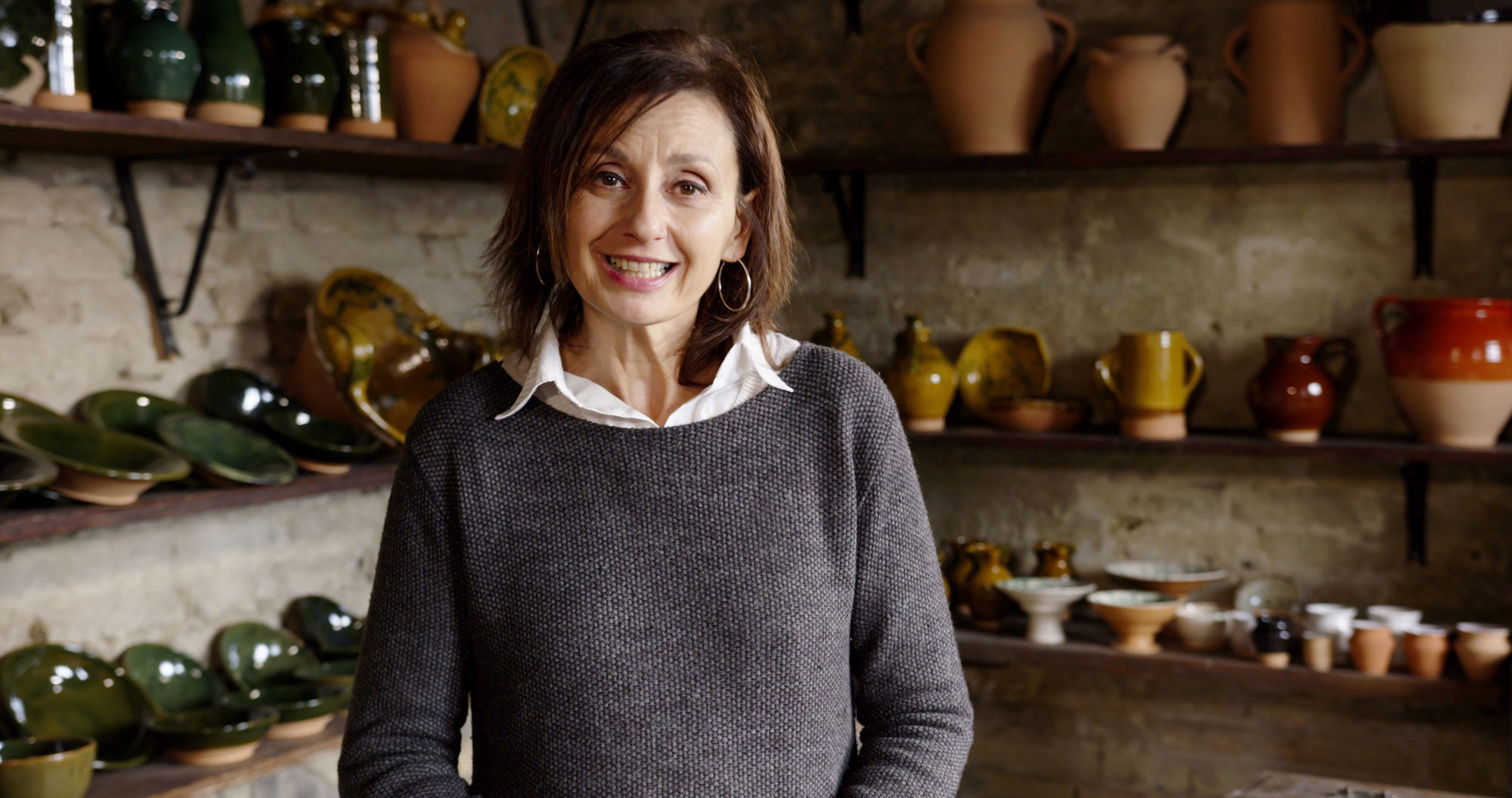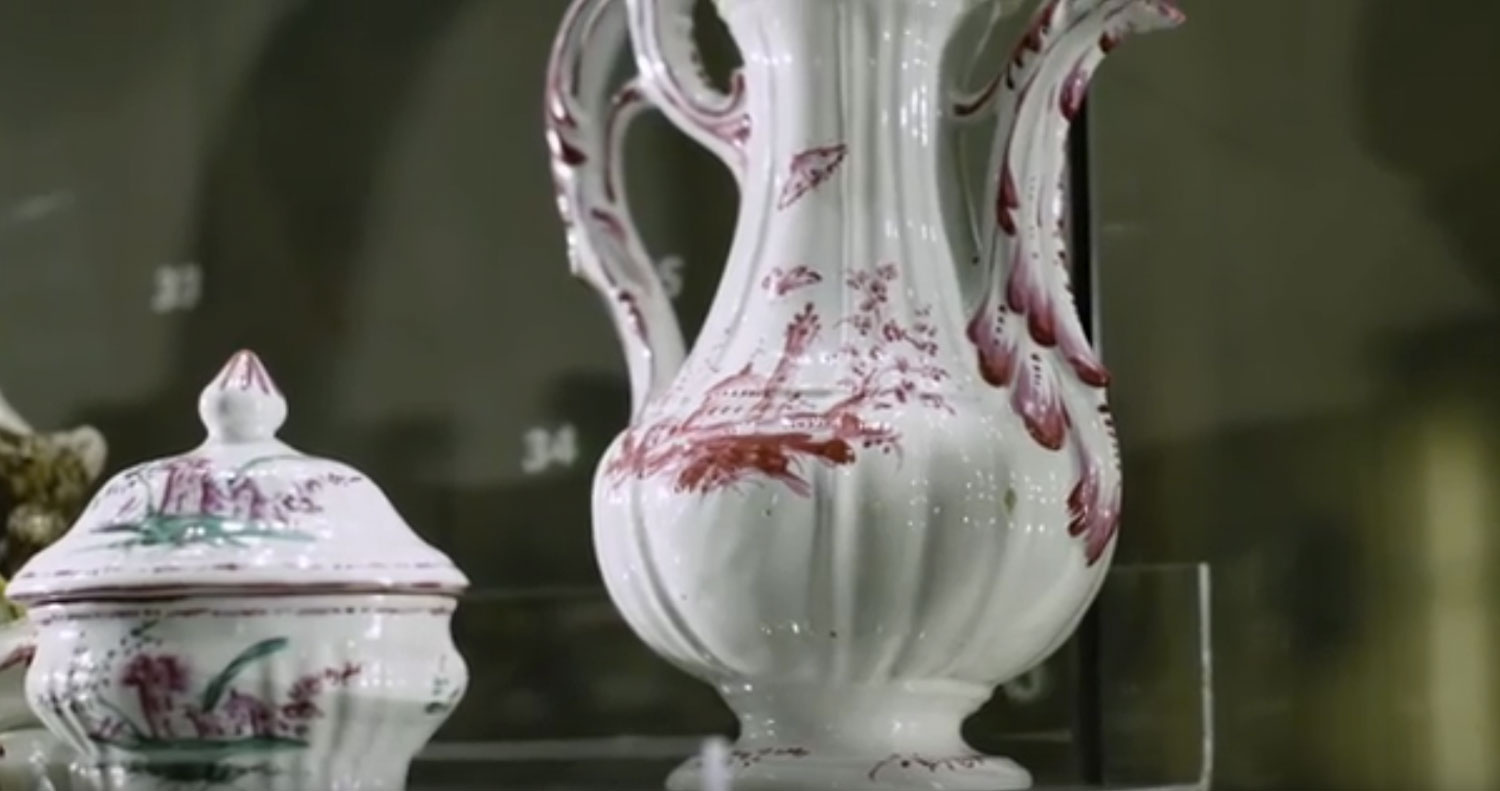Places and colours of Ascoli majolica: the Museum of Ceramic Art

This time “Museum” will make you discover the place that tell us about Ascoli ceramics history, for a fascinating itinerary trough the different decorations and style.
Ceramic is part of Ascoli cultural identity; an art that preserve up to today the same preciousness and extraordinary technique of the past.
We are in the “rue” of Ascoli, the city of one hundred towers; that’s true, but also the city of many narrow streets called rue. They interlace into the medieval old town, builded on the previous roman layout. This is the heart of the city: many little worlds apart that shape Ascoli romantic soul.
In Ascoli majolica is the main tradition, already popular between the 14th and the 15 th century. By this time the majolica painters specialized in enameled ceramics, while the potters trow the clay, creating terracotta manufactures.
You will be struck by those brilliant and shining colors, typical of ascoli majolic. You can choose and buy majolic in the charming artisans workshop in the old town, without getting lost in the narrow streets… Ceramics that you can also find in the really interesting Ceramic Museum.
The Museum of Ceramic Art was inaugurated in 2007 and it is situated in the fourteenth – century cloister, next to the Romanesque Church of San Thomas, in the spectacular square with the same name, that once was the seat of the Roman amphitheatre.
Here you can see the artistic pieces that represent the rich museum collection belonging to the Town Hall, to Carisap, Bank Foundation of Ascoli Piceno, and to Matricardi family.
The museum in divided into five sections, which let you understand the importance of this manufacturing activity in the economic and social history of Ascoli.
There are the ancient majolica of Fifteen-Century and the productions of Nineteen and Twenty Century belonging to local ceramist, that is to say to the important families Paci and Matricardi. There is also a permanent exhibition regarding the contemporary decoration of ceramic of the new artists of Ascoli Piceno.
A special section is dedicated to the Ceci collection, given to Ascoli Piceno Town Hall in 1920. Antonio Ceci was a doctor and a collector who was born in Ascoli Piceno and who enriched both the Civic Picture Gallery and the Museum of Ceramic Art with his artistic collections.
Besides the Ascoli Piceno majolica, in this museum you can see also the works of art coming from Deruta, Faenza, Montelupo, Savona and Genoa, and also German and French porcelains.
In the Museum you can visit a section characterized by tiles, decorated by great artists coming from Castelli town, situated in Abruzzo, such as Francesco and Carlo Antonio Grue and Berardino Gentili.
The visit of the Museum includes also a laboratory of ceramic art with potter’s wheel and stove, in order to follow the different passages necessary for the creation of the ceramic product, till the moment of firing.
- 167
- 3687








